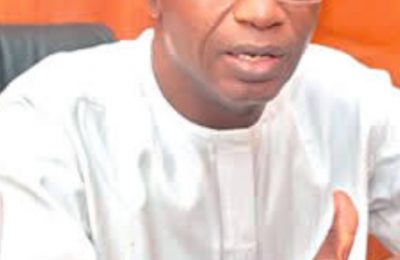
THE prominent factor that differentiates democracy from autocracy is the will of the people. That is why serious condemnations continue to trail the resurgence of military rule in Africa, especially from those who believe that it is an aberration to replace the will of the people with the barrel of gun. However, considering the growing cases of cancellation of people’s will on the altar of technicalities in Nigeria, it is obvious that there is another variant of this syndrome raising its ugly head in the land. While reacting to the verdicts of the Court of Appeal on the governorship elections in Plateau, Kano and Zamfara states on 22nd November, 2023, former President of Nigeria, Chief Olusegun Obasanjo, queried the propriety of three to five judges overturning the decisions made by millions of voters during an election and called for an urgent step to stop the trend.
Based on the provisions in the section 6 (1-6) of the 1999 Constitution of the Federal Republic of Nigeria (CFRN) as amended, the judicial power of the federation is vested in the court of law and its jurisdiction extends to all matters between persons, or between government or authority and to any person in Nigeria, and to all actions and proceedings relating thereto, for the determination of any question as to the civil rights and obligations of that person. Making the court the only legitimate sanctuary to entertain electoral disputes. On several occasions, judicial decisions on election disputes had restored, reinstated and affirmed the will of the people while in some cases the judgments given generated controversies. For instance, while the judgment of the appeal and supreme courts on the 2022 governorship election in Osun State were welcomed with jubilation and celebration, the opposite seems to be the reaction of the people to the verdict of the appellate court on the 2023 governorship election in Kano State.

In the lead judgment delivered by Justice M. U. Adumeh on 17th November, the Court of Appeal held that NNPP never fixed any candidate for the governorship election conducted in the State on 18th March because before a person can be sponsored as a candidate for an election he must be a member of a political party. And since Governor Abbas Yusuf of Kano State has no proper documentation with the NNPP as at the time he contested election, it is assumed that he never contested under the law because sponsorship without membership according to section 177(c) of the 1999 CFRN is like putting something on nothing. Cancellation of people’s will on the altar of technicalities by the judiciary at the governorship level started with the transfer of the APC’s victory to PDP in Zamfara State in 2019 and was followed by the sacking of David Lyon less than 24 hours before his inauguration as governor of Bayelsa State in 2020.
Numerically, this seems to have grown from one state in 2019 to two states in 2023, showing the possibility of an increase in the numbers in 2027 if not nipped in the bud. The reasons for the nullification borders on the failure of the political parties to obey court order, negligence of the political party to carry out proper documentation of her candidate, irregularities at the election among others. Nevertheless, an in-depth analysis of the situation shows that the judiciary is throwing away the baby with the bath water. The baby in this scenario is the will of the people while the bath water is the process. It is the will of the people that differentiates democracy from other forms of government. That is why it is seen as a system where the majority have their way while the minority have their say. In a situation where the will of the majority is altered on the altar of the negligence of political parties, it is a matter of time before anarchy sets in. God forbid.
For instance, since the announcement of the cancellations, there have been protests upon protests with the threat of raining down fire and brimstone if the judgments are not reversed. This is worrisome considering the history of violence, conflict and crisis in the affected states. Angry youths holding stones of various sizes and wielding sticks reportedly attacked Buhari’s convoy and helicopter as it hovered above them in Kano State in January despite the presence of heavy security personnel. The same seems to be the story of Plateau State with the regular report of destruction of lives and property. This could become more complex if the ongoing protests in the states degenerate into violence because of the utterances of the political leaders in the states, especially those who see the judgment as an effort to push the opposition parties into a state of oblivion.
While the judicial hammer was slammed on the PDP in Plateau State, in Kano State it was NNPP that was affected and this happened within a space of four days, further buttressing the claims of those arguing that Nigeria is on the path to a one-party state. Although the cases have been taken to the Supreme Court for further determination, however, the protest and psychological trauma occasioned by the judicial pronouncements show that the cancellation of people’s will on the altar of technicalities is a syndrome that must be urgently addressed. No doubt, the inability of some of the political parties to maintain internal democracy and the mentality of the winner-takes-all cum the increase in the numbers of corrupt officials of the electoral umpire seem to have contributed largely to the acceleration in the spread of the trend. However, the evaluation of the danger it portrays in the long run shows that there is a need to stop the trend before it leads to crisis in the country. This can be done by putting in the constitution laws that will make it difficult for the judiciary to cancel the will of the majority and state in clear terms what needs to be done in case a declared winner has a certificate deficiency, or where a political party’s negligence has affected the candidacy of a declared winner, so that the victory of the majority will no longer be transferred to the minority on the altar of technicalities.
- Oluwasanmi writes in from Atakunmosa, Osun State.
READ ALSO FROM NIGERIAN TRIBUNE







